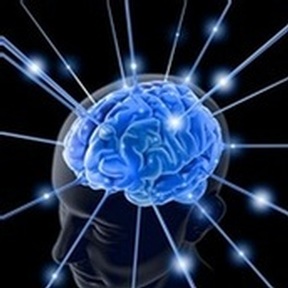Brain-training computer game improves cognitive function of older people
American scientists have shown how a simple computer game can improve the cognitive function of older people.

Researchers at the University of California, led by neuroscientist Adam Gazzaley, asked 174 people between the ages of 20 and 79 to play Neuroracer, a driving game that requires players to navigate a car along a winding road. While they ‘drive’ the car, various signs randomly pop up and players have to shoot down those of a particular shape or colour.
The scientists found that all participants had a worse performance when multitasking, with the biggest drop seen in older people. This led them to embark on a new test with 46 volunteers aged between 60 and 85, who were split into three groups – one that played the multitasking version of the game for 12 one-hour periods over a month, one that played a single task version and one that did not play at all. All participants saw a decline in performance on the multitasking assessment at the start of the study but by the end of the month those who played the more intensive level of the game showed improvements. Researchers even found that the group performed better than people in their 20s who had not had any training.
The academics also found that the memory and sustained attention improved in the people who played the multitasking version of Neuroracer, leading the academics to conclude that the game improves the cognitive function of older people.
Dr Simon Ridley, head of research at Alzheimer’s Research UK, hopes the idea can be tested on people with dementia to see if it has a similar effect. He said: “This small study provides useful new insight into some of the brain changes that occur as we age, and highlights a potential way people may be able to withstand these changes. This study did not look at people with dementia, but one next step could be to investigate how this type of training may affect people with the condition.
“The ability to improve cognitive health in old age could be crucial in the search for new treatments and preventions for dementia, but we must invest research to make this a reality. There is a growing body of evidence suggesting that mental activity may help make the brain more resilient as we get older. This research suggests that the type of activity may be important, but we would need to see larger studies to understand the full effects of training with this video.”
Latest News
 29-Jul-24
Dementia Bus gives carehome.co.uk staff insight into life with dementia
29-Jul-24
Dementia Bus gives carehome.co.uk staff insight into life with dementia
 01-Mar-24
Find out the top care homes in 2024
01-Mar-24
Find out the top care homes in 2024
 21-Mar-23
UK's top care homes in 2023 revealed
21-Mar-23
UK's top care homes in 2023 revealed
 03-Jan-23
carehome.co.uk launches free care helpline
03-Jan-23
carehome.co.uk launches free care helpline
 13-Dec-22
5 mins with Emily Whitehurst, chief operating officer for Constantia Healthcare
13-Dec-22
5 mins with Emily Whitehurst, chief operating officer for Constantia Healthcare